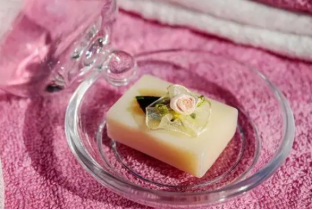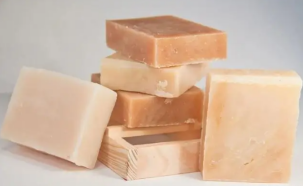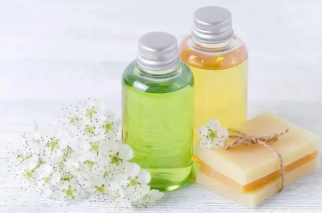- Home
- Products
- Elementary
- Boride Powder
- 3D Printing Powder
- Sulfide Powder
- Oxide Powder
- Carbide powder
- Nitride Powder
- Silicide Powder
- Hydride Powder
- Telluride Powder
- Selenide Powder
- Stearic Acid Series
- Phosphide Powder
- Nanoparticles
- Metal Alloy
- MAX Phase
- Lithium Battery Anode
- Surfactant
- Molecular sieves
- Concrete Admixtures
- News
- Answers
- Contact
- About
News
- 1
- 1
Sodium silicate in liquid soap: the secret weapon for protecting your skin
If you are looking for high-quality products, please feel free to contact us and send an inquiry, email: brad@ihpa.net
Basic introduction to sodium silicate
Sodium silicate, with the chemical formula Na2SiO3, also known as water glass, is widely used in manufacturing cosmetics and cleaning products. Sodium silicate is a colorless and transparent liquid with high solubility in water and can thicken, emulsify and increase cleaning power.
The effects of sodium silicate in soap
1. Adjust pH value
When making soap, caustic soda or caustic potassium is added to vegetable oil, which turns the fatty acids in the vegetable oil into soap and also releases a large amount of hydroxyl ions, making the solution extremely alkaline. The addition of sodium silicate can neutralize the alkalinity in the solution, affect the chemical balance of the soap, and adjust the pH value of the soap to make it more suitable for use on the skin.
2. Increase cleaning power
The addition of sodium silicate can increase the cleaning ability of soap. There are Si-O-Si bonds in the molecules of sodium silicate. It is highly polar and can combine with grease and bring out dirt dissolved in water, playing an excellent role in cleaning the soap. Cleansing effect.
3. Stable foam
The addition of sodium silicate can also make soap lather more stable. The silicate molecules, which contain silicon and oxygen atoms, can create hydrogen bonds with water molecules, increasing the foam's stability and density, extending the foam's duration, and making the soap more suitable for use in washing.
It should be noted that the amount of sodium silicate should not be excessive. Otherwise, it will result in burns and irritation to the skin. At the same time, sodium silicate can also have adverse effects on the environment. Therefore, soap producers and users must master the usage method and amount of sodium silicate to produce high-quality soap for healthy use.

Why is saturated sodium silicate solution added to the sodium higher fatty acid separated when making soap?
1. Provide a certain buffer alkalinity. Sodium silicate, also known as caustic soda and sodium silicate, is a buffering washing soda with a strong cleaning effect and very low cost.
2. Saturated sodium silicate has a certain effect on stabilizing the form of soap base and can improve the hardness and durability of soap.
3. During the saponification process, it is likely that a small amount of fatty acid triglycerides will be hydrolyzed and not neutralized by caustic soda. That is, free acid is present. The addition of sodium silicate neutralizes this slowly released free acid.
4. Sodium silicate hydrolyzes to produce sodium hydroxide, which reacts with acid.

Why does white frost appear on the surface of the soap when too much alkali is added during the soap making process?
Other auxiliary raw materials used in soap production include: ① Sodium silicate, also known as water glass, the main component is sodium silicate, general dosage is 2%~4%. It is an essential auxiliary and filler in laundry soap, mainly used to improve soap's hardness and reduce soap's shrinkage deformation. At the same time, it can buffer the free alkali remaining in the soap, reduce the irritation of soap on human skin, and have the functions of softening hard water, reducing the amount of soap, and preventing soap rancidity; ② table salt, it plays a salting out role in the process of making soap, separating glycerol from the soap liquid, reducing the moisture in the soap and improving the quality of the soap, making the color of the soap lighter and eliminating impurities in the soap; ③ Rosin used to Increase the foam produced by soap, increase the solubility of soap, prevent soap from rancidity, make the soap texture fine, reduce the white frost on the soap surface, and lubricate the skin. However, excessive use will cause the soap to change color gradually, and the washed clothes will turn yellow and stain and have sticky feeling ④ Spices: vanilla oil is used for fine soaps, camphor oil, diphenyl ether, rosin alcohol, camphor oil, etc., are used for general soaps. They are mainly used to eliminate the sour smell of inferior oils.

Supplier
TRUNNANO is a supplier of sodium silicate materials with over 12 years experience in nano-building energy conservation and nanotechnology development. It accepts payment via Credit Card, T/T, West Union and Paypal. Trunnano will ship the goods to customers overseas through FedEx, DHL, by air, or by sea. If you are looking for high-quality sodium silicate please feel free to contact us and send an inquiry.https://www.nanotrun.com/blog/the-wide-application-of-sodium-silicate-products-makes-this-industry-occupy-an-important-position_b1298.htmlhttps://www.nanotrun.com/blog/?Keyword=Sodium+silicatehttps://www.nanotrun.com/blog/?Keyword=Sodium+silicate
Inquiry us
PREVIOUS NEWS
building materials industry indispensable good material
NEXT NEWS
